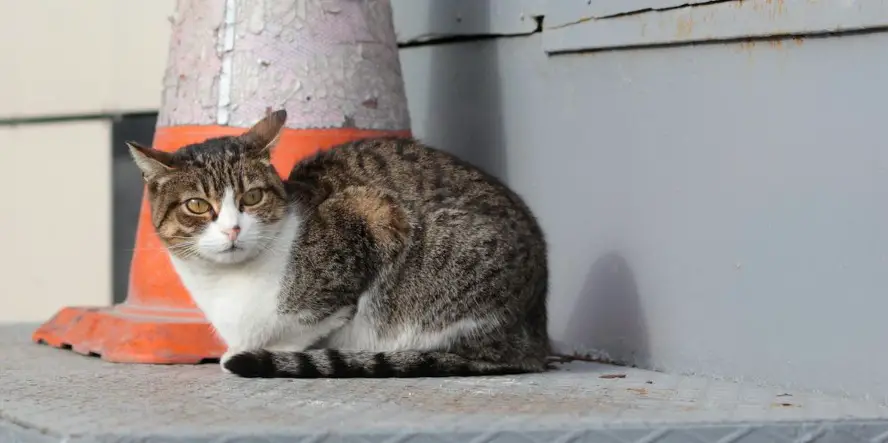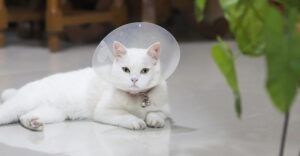Welcome to my blog post on the intriguing world of unneutered male cat behaviors!
If you’ve ever wondered why your furry friend exhibits certain challenging habits, such as aggressive behavior or territorial marking, this is the article for you.
Join me as I explore the fascinating realm of unneutered male cats and discover the importance of addressing these behaviors for a harmonious home.
Let’s get started…
Unneutered Male Cat Behaviors
Unneutered male cats can display certain behaviors that are influenced by their hormones.
Territorial marking, roaming, aggressiveness against other cats, and a strong urge to mate are a few examples of these behaviors.
Territorial marking is the act of a cat marking their territory with urine, whereas roaming is the cat’s propensity to venture outside of their house.
Competition for territory or mates can give rise to aggression against other cats, and in males who are not neutered, the need to mate can result in restless and occasionally loud behavior.
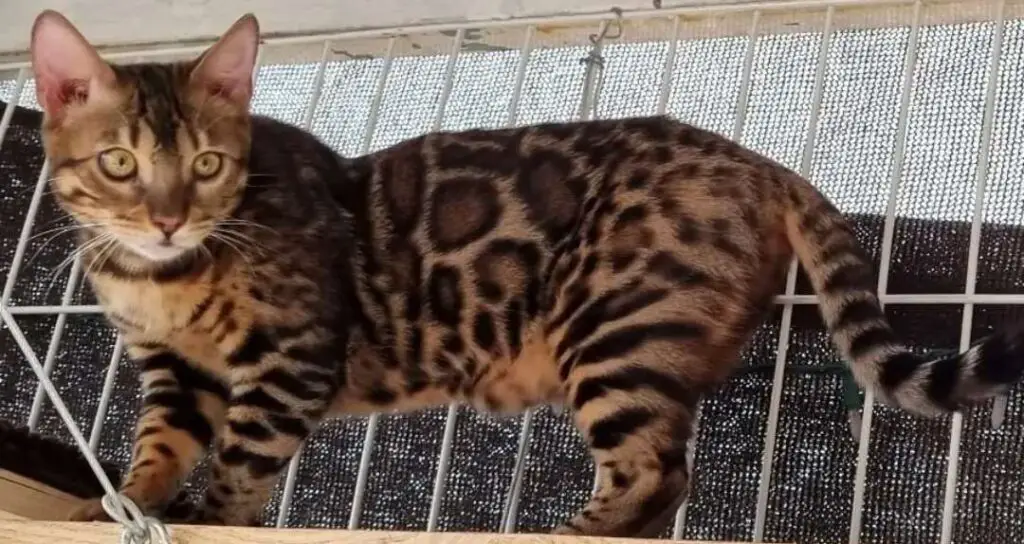
For a better understanding, here are some of the most common unneutered male cat behaviors you should know:
Urine Spray Marking: Urine spray marking is one of the most prevalent behaviors observed in male cats who are not neutered.
In order to mark their territory, unneutered male cats will spray tiny amounts of pee onto vertical objects like walls or furniture.
They use it to let other cats and possible partners know that they are around. Urine usually smells strongly and strongly of sulfur.
You may see small amounts of urine on vertical surfaces in your home or in locations that your cat frequently visits in order to recognize urine spray marking.
Urine is frequently emitted in brief bursts and has a unique spray pattern. Furthermore, when spraying, intact male cats frequently hold their tails upright.
Related: Male cat behaviors after mating.
Aggressive Towards Other Male Cats: When vying for mates or territory, unneutered male cats may act more aggressively against other unneutered male cats.
Aggression can show out in a number of ways, including growling, swatting, hissing, and getting into physical altercations.
Additionally, they might display dominant characteristics including stiff-legged walking, raised fur, and arching back posturing.
Watch how your cat behaves with other cats to spot aggressiveness directed towards other male cats.
Keep an eye out for hostile cues such as hostile body language, vocalizations, and physical altercations.
While violent behavior is not always seen in unneutered male cats, it is more frequently seen in intact cats.
Strong Roaming Instincts: Male cats who aren’t neutered have a strong inclination to prowl around and investigate their environment in quest of possible mates.
When trapped indoors, they could try to break out of the house or become restless.
Their innate need to locate a mate and mark their territory is what motivates them to act in this way.
When your male cat is indoors, listen for indications of restlessness or increased vocalizations to see whether they have strong roving impulses.
They could try to fit through tiny openings, pace, or scratch at doors or windows.
Additionally, unneutered males are more likely to mark their territory outside by urinating on shrubs, trees, and other things.
Related: Male cat behavior during mating season.
Exhibit Mounting Behavior With Other Cats or Objects: Male cats who are not neutered may engage in mounting behavior as a means of establishing their authority or engaging in sexual activity.
In order to mimic mating behavior, the cat will hold a toy, another cat, or an object with their forelegs. It might be aimed at inanimate things or at other male or female cats.
Observe your male cat playing or interacting with other cats to spot mounting behavior.
It can be an indication of intact male behavior if they try to mount other cats or things on a regular basis.
This behavior, which frequently includes vocalizations, may indicate that your cat is going through hormonal changes related to sexual maturity.
Vocalizing More Loudly and Frequently: Unneutered behavior may be indicated if you observe that your male cat is meowing or yowling more loudly and frequently than normal.
Especially when they are looking for a mate, unneutered males have a tendency to be more vocal.
They communicate their desire to locate a female companion by their loud and persistent meowing.
In order to help your cat cope with their hormonal cravings, neutering them can be a smart idea if you see this behavior.
Increased Levels of Energy and Restlessness: Male cats who are not neutered frequently exhibit increased energy and restlessness, they could also start acting more energetically and playfully.
They may start leaping on furniture, rushing about the house, or doing zoomies more frequently.
Their innate need to find a partner and mark their territory may be the source of this surplus energy.
Your cat’s hormonally-induced restlessness can be reduced by neutering them.
Neglecting Grooming Habits: If they are not neutered, male cats may begin to disregard their grooming routine.
A cat’s regimen must include grooming; if they become less interested in it, it may be a sign of unneutered behavior.
Their heightened emphasis on mating and territory marking may be the cause of this shift in grooming practices.
This problem can be addressed with frequent grooming sessions and making sure your cat has a tidy and comfortable space.
Engaging in Unnecessary Fights: Male cats who are not neutered are more likely to fight with other cats. They might hiss, snarl, and even fight with other cats physically as examples of aggressive tendencies.
Their innate desire to establish dominance and compete for mates frequently causes them to act aggressively.
If you see your male cat getting into pointless fights, you need to take action to avoid these kinds of situations.
Cats who have been neutered tend to be less aggressive toward other cats and live in harmony with them.
Challenges for Unneutered Male Cat Owners
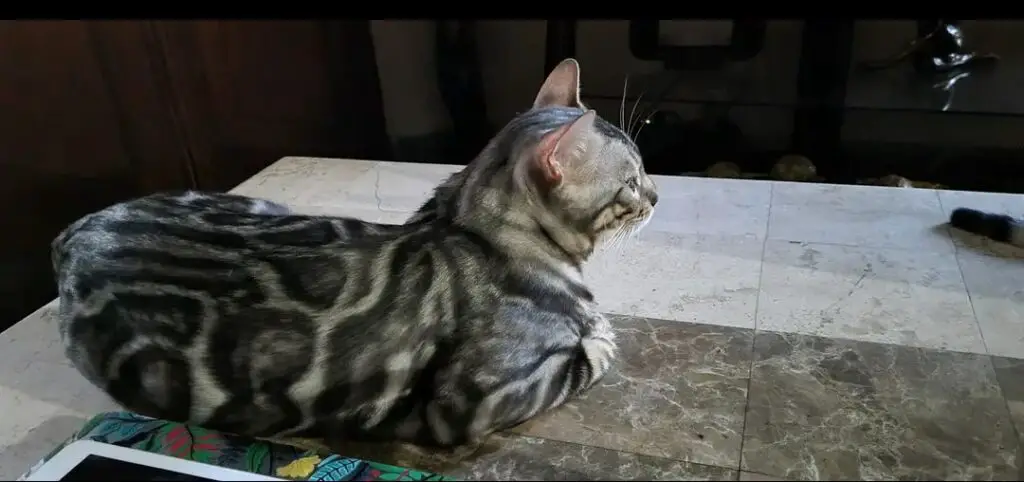
Owning an unneutered male cat can bring about some unique challenges here are some common hurdles and how to handle them:
1. Coping with increased vocalization: Male cats who are not neutered are more likely to vocalize excessively, especially once they achieve sexual maturity.
To entice partners, they may make loud noises such as yowling or meowing. This may cause you a lot of disruption, particularly if you have near neighbors or live in an apartment.
Consider neutering your cat if they are becoming more noisy. Excessive vocalization can be greatly reduced by hormone-driven behaviors, which can be neutered.
To keep your cat busy, give him lots of mental and physical stimulus as well. Playtime on a regular basis, interactive toys, and scratching posts can help distract him and lessen his desire to talk.
2. Managing roaming tendencies: Male cats who aren’t neutered have a strong inclination to prowl around and investigate their area in quest of possible partners.
This puts them at risk of mishaps, fights, and losing their way if they manage to escape from your house or yard.
It’s imperative to keep your cat indoors or offer a safe outdoor enclosure to control their wandering instincts. This will let him enjoy the outdoors without compromising his safety.
In addition, if your cat manages to escape, there’s a greater chance he’ll make it back safely if you microchip him and make sure he wears an identifiable collar.
3. Dealing with urine marking: Urine marking is one of the most frequent problems unneutered male cat owners encounter.
Males who are not neutered have an intense drive to mark their territory by peeing on furniture or walls that are vertical. This behavior can be annoying and challenging to control.
Neutering your cat is vital if you want to deal with urine marking. Urine marking activities can be greatly reduced or completely eliminated with neutering.
You should also make sure that your home has a sufficient quantity of clean, easily accessible litter boxes. This may persuade your cat to stop marking his territory and use the litter box instead.
4. Aggressive behaviors: Male cats who are not neutered may act aggressively, particularly toward other cats or animals.
They might get into conflicts, act aggressively toward others on their territory, or become very possessive.
It’s crucial to seek advice from a qualified animal behaviorist or veterinarian when dealing with violent tendencies in animals.
To assist reduce aggressive tendencies, they might offer guidance on behavior modification strategies like positive reinforcement training.
Because neutering your cat lessens the impact of hormones, it can also help minimize aggressive tendencies.
Benefits of Neutering a Male Cat
For both the cat and its owner, neutering a male cat has a number of advantages. First of all, it lessens the cat’s inclination to roam around and increases the likelihood that they won’t be lost or hurt.
Second, the chance of developing certain conditions including testicular cancer and prostate difficulties can be considerably reduced by neutering.
Neutered cats also generally behave less aggressively, which makes them a better fit for homes with kids or other pets.
Last but not least, neutering helps manage the cat population by avoiding unwanted litter and lowering the number of stray cats in your neighborhood.
Behavioral Changes after Neutering a Male
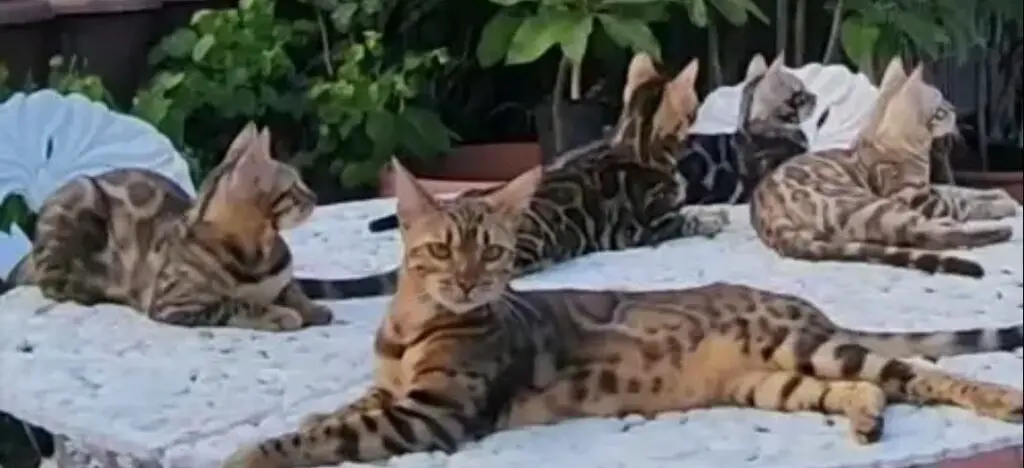
Male cats that have been neutered may exhibit various behavioral changes. Since neutering lowers testosterone levels, one typical change is a decrease in aggression.
Additionally, neutered cats are less likely to wander around and leave urine marks on their surroundings, which can contribute to a cleaner home.
Neutered cats also have a tendency to be less interested in mating behaviors and more loving.
In general, neutering a male cat can have a good effect on his behavior and make the home happier and more peaceful.
Tips for Dealing with Unneutered Male Cat Behaviors
Although dealing with unneutered male cat behaviors might be difficult, you can effectively manage them if you take the appropriate approach.
First of all, neutering your cat can assist lessen aggressive behavior and wandering inclinations.
Secondly, to keep them occupied and discourage bad behavior, give them lots of mental and physical stimulation through interactive toys and playtime.
Your cat will also feel more stable if you follow a regular schedule for feeding, brushing, and litter box care.
The last course of action is to seek the expert counsel and advice of an animal behaviorist or veterinarian for your cat’s particular needs.
Related: Unspayed female cat behaviors.
Conclusion
In summary, unneutered male cat behaviors can be both concerning and disruptive. From territorial marking to aggressive tendencies, these behaviors can impact not only the cat’s well-being but also the overall harmony of the household. By opting for neutering, pet owners can address these issues, ensuring a happier and healthier environment for both feline and human companions alike.
Related: Male cat behavior after neutering.
Frequently Asked Questions
Why does my unneutered male cat spray indoors?
Unneutered male cats spray to mark their territory and attract potential mates. This behavior is driven by their natural instincts and hormonal changes. Neutering your cat can significantly reduce or eliminate this spraying behavior.
Is aggressive behavior common in unneutered male cats?
Yes, unneutered male cats can exhibit aggressive behavior due to territorial instincts and competition for mates. They may become more prone to fighting with other cats and even display aggression towards humans. Neutering can help reduce aggression and promote a calmer demeanor.
Do unneutered male cats roam more than neutered cats?
Yes, unneutered male cats have a strong desire to mate, which can lead to roaming in search of potential mates. This behavior increases the risk of accidents, injuries, and exposure to diseases. Neutering can help curb their roaming tendencies and keep them safe.
Can unneutered male cats have health issues?
Unneutered male cats are at a higher risk of developing health issues like testicular cancer, urinary tract infections, and prostate problems. Neutering not only helps prevent these potential health problems but also promotes overall well-being and longevity in male cats.

